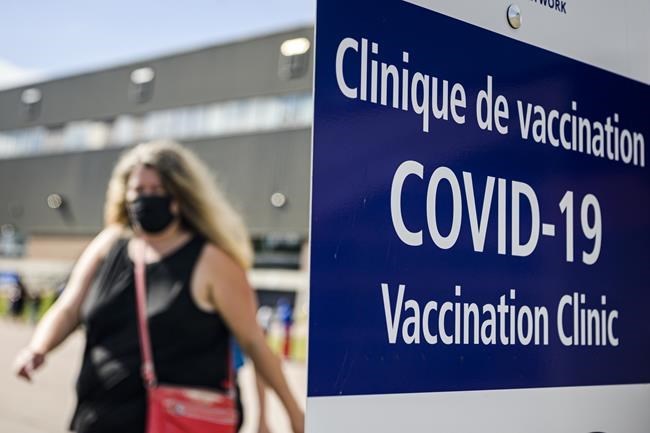FREDERICTON — The minimum age of eligibility for second COVID-19 boosters in New Brunswick has been dropped to 18 from 50, health officials said Tuesday, but they stopped short of declaring that the province was about to enter another wave of disease.
Residents 18 and older can obtain a second booster of COVID-19 vaccine if at least five months have passed since their third shot.
Chief medical officer of health Dr. Jennifer Russell says the decision to expand access to boosters came as the number of daily COVID-19 cases in the province started to increase.Â
"We see them trending up, and that concerns us," Russell said in an interview. "Our message is get vaccinated with whatever dose you are eligible for if it has been longer than five months."
And while health officials in provinces such as Quebec and Ontario have already declared the start of a seventh wave of COVID-19, Russell said she wasn't ready to do the same for New Brunswick.
"There are semantics around that — whether it's a wave or a surge or a blip," she said. "In epidemiological terms we are seeing the curve go up. For us that means the risks are higher, and if you want to lower your risk, the best thing you can do is get vaccinated with that next dose."
Most new cases in the province, she said, involve the BA.4 and BA.5 subvariants of the Omicron mutation. "We are seeing 32 per cent of our samples are BA.4 and 45 per cent of our samples are BA.5," noting that they are more transmissible than the original Omicron mutation.
Russell also reported four more COVID-19-related deaths from last week. There have now been 433 COVID-19-related deaths in the province since the onset of the pandemic. There were 17 people hospitalized with the disease — a drop of two from a week ago.
This report by The Canadian Press was first published July 12, 2022.Â
Kevin Bissett, The Canadian Press



